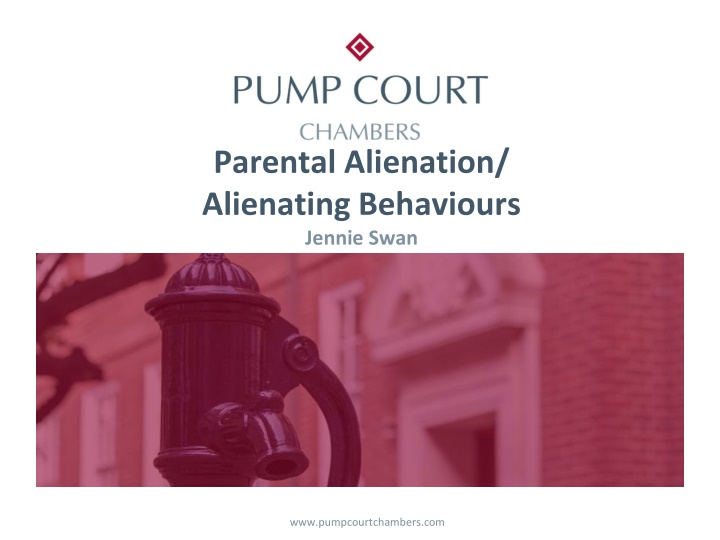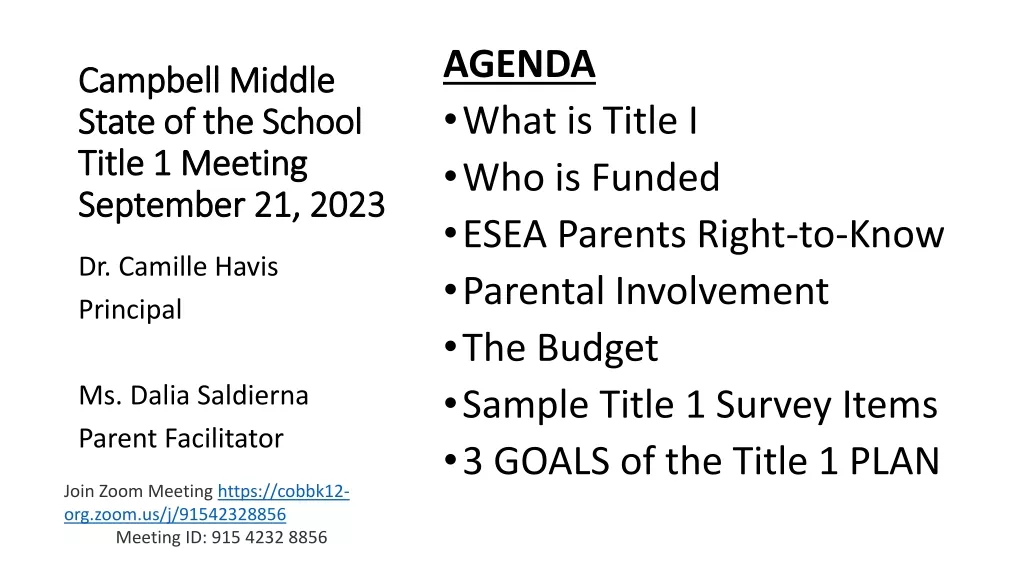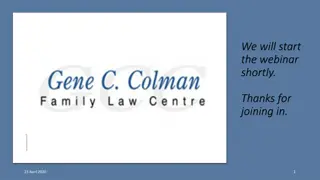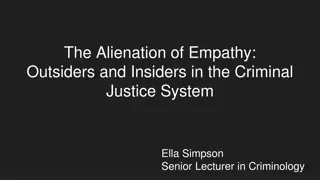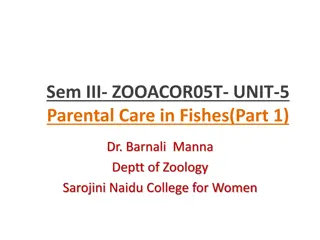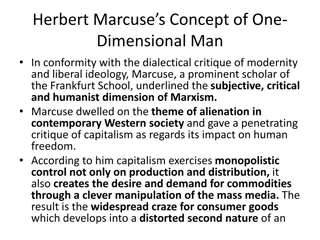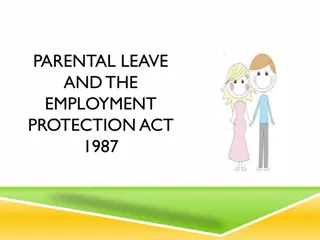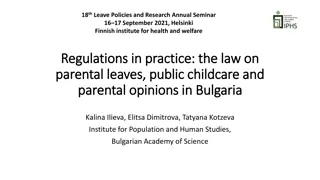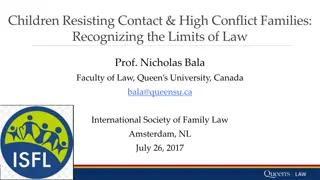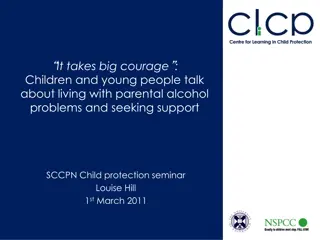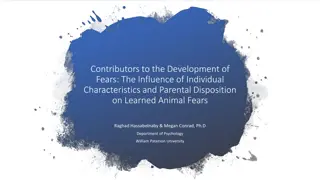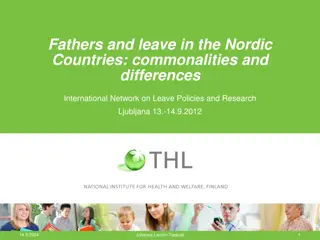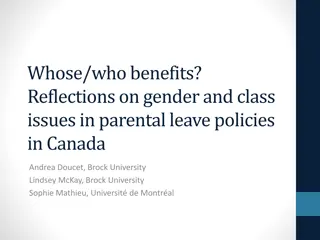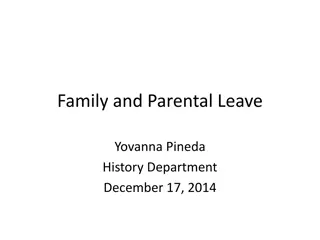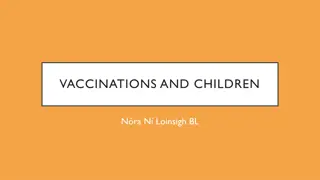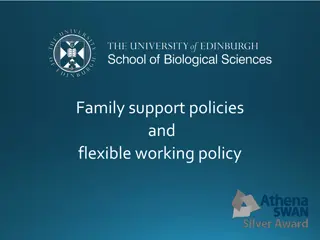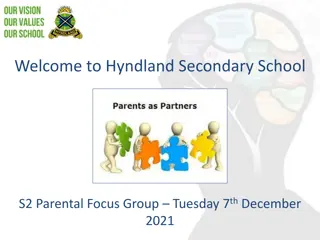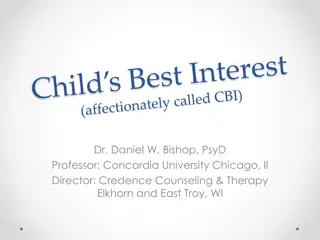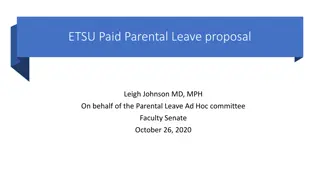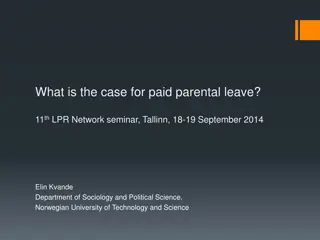Parental Alienation and its Impact on Children - Key Insights
Parental Alienation is a complex issue where one parent psychologically manipulates a child to reject the other parent. This behavior can have severe consequences on the child's well-being and family dynamics. Recognizing the signs of Parental Alienation is crucial for early intervention and ensuring the child's welfare. Expert opinion stresses the importance of addressing alienating behaviors promptly to safeguard the child's mental and emotional health. Legal perspectives highlight the need for diligent court action to mitigate the damaging effects of Parental Alienation on children and families.
Download Presentation

Please find below an Image/Link to download the presentation.
The content on the website is provided AS IS for your information and personal use only. It may not be sold, licensed, or shared on other websites without obtaining consent from the author.If you encounter any issues during the download, it is possible that the publisher has removed the file from their server.
You are allowed to download the files provided on this website for personal or commercial use, subject to the condition that they are used lawfully. All files are the property of their respective owners.
The content on the website is provided AS IS for your information and personal use only. It may not be sold, licensed, or shared on other websites without obtaining consent from the author.
E N D
Presentation Transcript
Parental Alienation/ Alienating Behaviours Jennie Swan www.pumpcourtchambers.com
Headlines Delay is the enemy (even more so than usual); Re S [2020] (Parental Alienation: Cult) [2020] EWCA Civ 568; Get an early FFH if necessary; Choose your expert carefully!
Definition CAFCASS working definition: When a child's resistance/hostility towards one parent is not justified and is the result of psychological manipulation by the other parent CofA added: the manipulation of the child by the other parent need not be malicious or even deliberate. It is the process that matters, not the motive.
What to look for - Children 1. One parent is all good, the other all bad; 2. Trivial/false/weak justification for rejection; 3. Reactions/perceptions are disproportionate to a parent s behaviour; 4. No positive memories of rejected parent, negative memories they could not actually remember; 5. Otherwise compliant children defy other parent s attempts to encourage contact; 6. No guilt or ambivalence re: attitudes towards the rejected parent; https://www.cafcass.gov.uk/grown-ups/professionals/ciaf/resources-for- assessing-child-refusal-resistance/
What to look for - Parents 1. Actively denigrates and exaggerates flaws in the rejected parent; 2. Says they will not force or drag child to contact; 3. Has authority over other aspects of child s life (schooling etc) but abdicates responsibility for contact arrangements; 4. False allegations of abuse, or a single incident has disproportionate levels of fear/risk associated; 5. Does not correct child s rude/defiant behaviour towards alienated parent, but would not tolerate this directed at other people
Re S (Parental Alienation: Cult) [2020] EWCA Civ 568 Labels don t matter - abusive behaviour must be addressed whether or not it arises from a syndrome or diagnosed condition; In alienation there is a spectrum of severity the remedy will depend upon an assessment of all aspects of the child's welfare; Once orders are required, the court's powers include those provided by sections 11A to 11O CA 1989 Change of primary residence is a significant alteration but not a last resort Art 8 is engaged - there are positive obligations inherent in a respect for family life. The Court s must act with exceptional diligence ; The line of least resistance is likely to be less stressful for the child and for the court in the short term BUT medium-to-long term welfare must be the focus, not short term problems.
Some other useful cases Re C ('Parental Alienation'; Instruction of Expert) [2023] EWHC 345 (Fam) - choose the right expert - make sure a CV is before the Court - alienation is not a diagnosis; it is a judicial finding Warwickshire CC v Mother [2023] EWHC 399 (Fam) - parental alienation is not always a helpful label - children, especially older children, are autonomous beings who have their own feelings and perceptions - it needs to be accepted that the muscularity of Court intervention at 13 Re S may be in considerable tension with children s wishes and feelings - consider whether interference is proportionate Re H (parental alienation) PA v TT and another [2019] All ER (D) 85 - change of residence ordered where repairing the relationship between the child and the alienating parent would fail if he remained in the care of the alienating parent Re T (Parental Alienation) [2019] EWHC 3854 (Fam) - wardship - change of residence/bridging placement considered Re S [2020] EWHC 217 (Fam) - repeated s47 investigations not anchored to a comprehensive family assessment are unlikely to be helpful - make sure your SW is experienced - not a trainee
A few more Re A & B (Parental Alienation: No 4) [2021] EWHC 2603 (Fam) - supervised contact (with no exit strategy) can be a final order Re A & B (Parental Alienation: No 2) [2021] EWHC 2601 (Fam) - not in the children s interests to be joined as a party Re A & B (Parental Alienation:No 1) [2020] EWHC 3366 (Fam) - change of residence with a v. restrictive interim contact regime with the alienating parent
One more Re A (Parental Alienation) [2019] 9 WLUK 445 - failure to identify the real issue - delay - review hearings - lack of an early FFH/final hearing to provide a factual matrix - indirect contact can sometimes serve no purpose - too many professionals - a lack of joined up thinking by professionals - lack of early intervention to identify the issues of a parent, which meant therapeutic work was pointless - lack of critical analysis of the children wishes & feelings, allowing their views to become entrenched - delay in joining the children to the proceedings * Careful planning is required when effecting a change of residence
Practical Steps Practically: Identify the issue ASAP If allegations are made - seek an early FFH If not, establish contact ASAP Don t let the matter drift Consider whether C needs to be made a party Do you need a s37 direction? ISO/ICO? If CAFCASS are involved, what can they do to establish a relationship? CCI? Do you need an expert? If so, which one? Keep in mind the desired/possible outcome - is it realistic?
